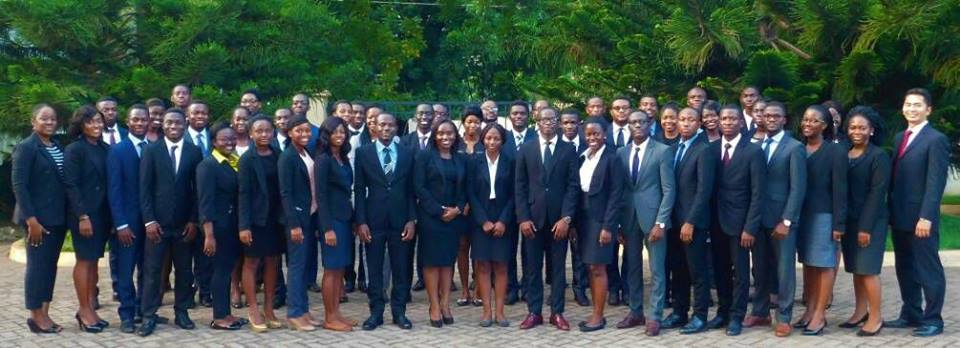Entrepreneurship vs. Intrapreneurship; Africa's dilemma in dealing with unemployment. A case study of Ghana
Africa has been described by
many as a continent on the rise. According to the African Union Agenda 2063, It
is estimated that by 2050, Africa would have the largest youthful population
with a huge workforce. Despite the huge prospects and the enormous resources
the continent is endowed with, Africa continues to face numerous challenges.
These challenges include poverty, unemployment, inadequate infrastructure and
many more. According to the latest World Bank Africa poverty report, Poverty
across the continent may be lower than what current estimates suggest, though the
number of people living in extreme poverty has grown substantially since 1990.
In line with fighting poverty and dealing with unemployment, a lot of calls and
efforts has been put into encouraging young African's into creating their own
businesses or being entrepreneurs. In this feature, as a case study I would
attempt to explore if Ghanaian entrepreneurship is booming and why. I would
also want to delve into the issue of graduate employability. Specifically, I
would want to look at ways to make graduates employable in response to the loud
outcry concerning graduate unemployability from our many industry employers.
Is
Entrepreneurship in Africa booming and Why?
Once, I lived in a very rural
community close to the Bui Dam located in the Brong Ahafo Region of Ghana.
During my 7-week stay- in this community, I noticed the community lacked many
things. They neither had electricity, a
market, nor a lorry station. The community also lacked a Clinic too. I noticed
huge piles of packed charcoal packed under a big baobab tree that I use to
relax under. Usually, a mini-truck would come and load it away to the city
where many households would source their fuel for cooking from. Aside the
charcoal business, they also farmed cashew and would sell them after harvesting.
They usually sell to some big corporations whose trucks came passing by the
community many times. My experience in this community is not different from
most rural communities in Ghana these days. Many indigenous businesses are
adapting to the changing trends in doing business with the help of startups. In
recent times, many young people are venturing into entrepreneurial ventures as
compared to time past.
 |
| Photo Credit: Owula Kpakpo Photography / Enterprise Africa Summit |
According to Ndubuisi Ekekwe, "the collapse of the commodity boom has pushed countries and their citizens to invent other ways to survive because benefits like unbridled imports are no longer sustainable. Now many things are coming together which will help transform some African economies by the sheer power of their entrepreneurs." The era of technology just like it happened during the industrial revolution is shaping how Africans think and do business.
However, in the midst of all
this progress, a lot of concerns have been raised on the impact of all these
startups in the development of economies and their contribution to eradicating
poverty. Also, there's been a lot of buzz about social entrepreneurship. Social
entrepreneurship is the use of techniques by startup companies and other
entrepreneurs to develop, fund and implement solutions to social, cultural, or
environmental issues. This concept may be applied to a variety of organizations
with different sizes, aims, and beliefs. Many young people today, are engaged
in social enterprises. However, there is some misconception on what social
entrepreneurship is. Many young people are engaged in charity work but most
often classify that as social entrepreneurship. It's important we distinguish
between not-for-profit work and non-governmental work (social enterprises).
Bear in mind a non-governmental organization could be described as an
organization that makes profits out of the services they provide.
Intrapreneurship
in Africa booming and Why?
Lately, the term
"intrapreneurship" is becoming popular in Africa. Though discussions
around this isn't rife yet, many small and medium enterprises require that if
you are joining their team you must be an intrapreneur and not just any
graduate. This is because most of these firms are looking for employable
graduates who can lead teams, are available, dependable and need little or no
supervision. They are called ‘intrapreneurs’. They emerge from the confines of
existing businesses. According to Gifford Pinchot (1985), “An Intrapreneur is
an entrepreneur within an already established organization.” In large organizations,
the top executives are encouraged to grab onto new ideas and then convert these
into products through research and development activities within the framework
of the organization. The concept of Intrapreneurship is gradually becoming
popular in developing economies. However, there exists a gap in producing or
feeding industry with "intrapreneurs". This gap could be attributed
to the nature of curriculum in our tertiary or higher education institutions.
Most of the entrepreneurship courses taught in these institutions are
theoretical. Students hardly get the chance to practice what they are taught.
Also, they are deprived the esteemed chance of having a guest lecturer from
industry to share industry experience with them. In some cases, many students are
left to their own fate of finding a place for industrial attachment or
internship. Currently, many organizations such as SEO Africa, Africa Internship Academy, among many others provide internship opportunities to students in Higher Education Institutions. These organizations recruit, train and deploy students. Hence, they are equipped with the relevant skills for the roles they would be playing.
According to the latest World Employment Social Outlook (WESO) trends reports 2017 of the International Labour Organisation (ILO), Sub-Saharan Africa’s unemployment rate is forecast to stand at 7.2 per cent in 2017, unchanged from 2016. Though the report establishes that the unemployment rate remains stable, the number of unemployed is expected to increase from 28 million in 2016 to 29 million in 2017 due to the region’s strong labour force growth.
 |
| 2017 SEO Africa Class Photo Credit: SEO Africa |
According to the latest World Employment Social Outlook (WESO) trends reports 2017 of the International Labour Organisation (ILO), Sub-Saharan Africa’s unemployment rate is forecast to stand at 7.2 per cent in 2017, unchanged from 2016. Though the report establishes that the unemployment rate remains stable, the number of unemployed is expected to increase from 28 million in 2016 to 29 million in 2017 due to the region’s strong labour force growth.
Way
Forward:
It is critical that, as a
continent, we define the Ghana we would want to see in the next 50 years. So,
we can spend the next decade or less in preparation for a takeoff. In September
2015, 193 world leaders agreed to 17 Global Goals for Sustainable Development.
If these Goals are achieved, it would mean an end to extreme poverty,
inequality and climate change by 2030. Our governments have a plan to save our
planet. However, we are yet to see commitments towards realizing this goal. We
as a people, country and continent ought to define for ourselves and the
leaders what our blueprint is for achieving these goals. It’s our job to make
sure our leaders stick to these goals and work towards it with our support. If
we want to end poverty, let's push on manufacturing, build global businesses
locally and scale up startups.
1. Collaboration and Partnerships between Industry and Higher Education
Institutions:
In order to invest in the
youth in our bid to harness the demographic dividend of the continent, there is
a need for educational institutions to collaborate with industry to exchange
ideas and improve curricula that would make graduates employable. Through these
partnerships and collaboration, funding and human capital can be sourced to
undertake impact projects and nip the issue of unemployment in the bud. Also,
business leaders can be invited as visiting scholars to share insights and
lecture students regularly for them to have a grab on workplace or
organizational culture, understand the demands of these firms and receive
mentorship.
2. Support Rural and Indigenous Businesses to
Scale:
Today, no week passes by
without the announcement of pitch event A or B or C on social media. Whilst
there exist a wide range of opportunities for young graduates to grab and
become useful, the fate of our indigenous and rural enterprises seems to be
bleak. Most entrepreneurs in the city have access to a wide range of business
development services unlike the "village entrepreneur". Who if given
such an opportunity could employ a few more hands. Thereby, mitigating the rate
of rural urban migration. It is very important for us to reconsider all these
small businesses who don't have access to social media or technology to be able
to scale their businesses. In any case, I have discovered that, many
communities have very unique and rich indigenous knowledge in business which we
must not undermine.
3. A Positive Attitude:
Attitude is everything in life
and essential to the progress of every society, group, continent or the world
as a whole. Africa needs people who are willing to do right no matter what.
Africa needs people who respect diversity but prioritize participation and
inclusivity. From the employer to employee, there must be respect for labor
laws. The government must honor its promises. Leaders must shun corrupt
practices. As citizens, we must be our neighbor's keeper and protect assets of
the state. Society and its institutions, thus, has a great responsibility to
ensure that its grooms people with positive attitudes and progressive mindset
to liberate Africa from the chains of underdevelopment. Africa would only rise
if we combine our positive attitude with thinking globally and acting locally.
Author: Sampson Adotey Jnr
Author: Sampson Adotey Jnr


Comments